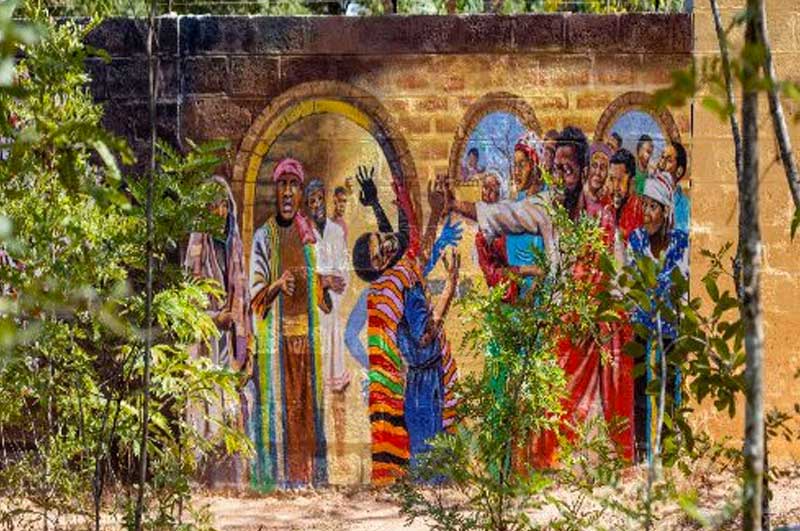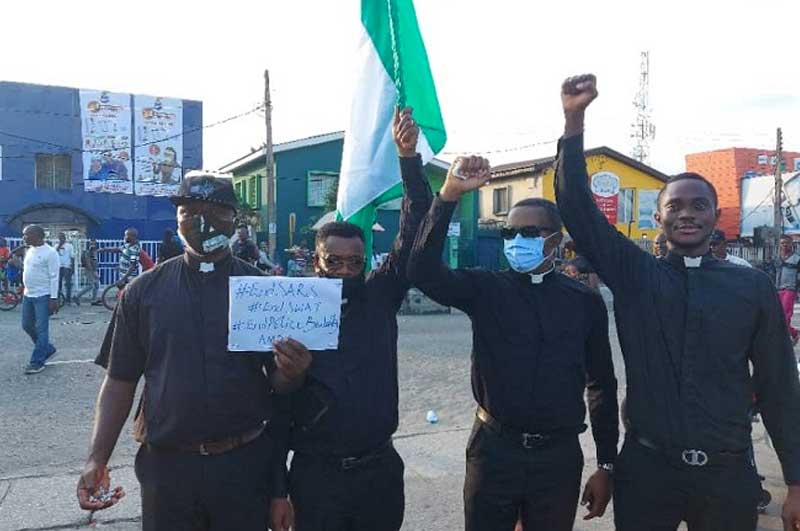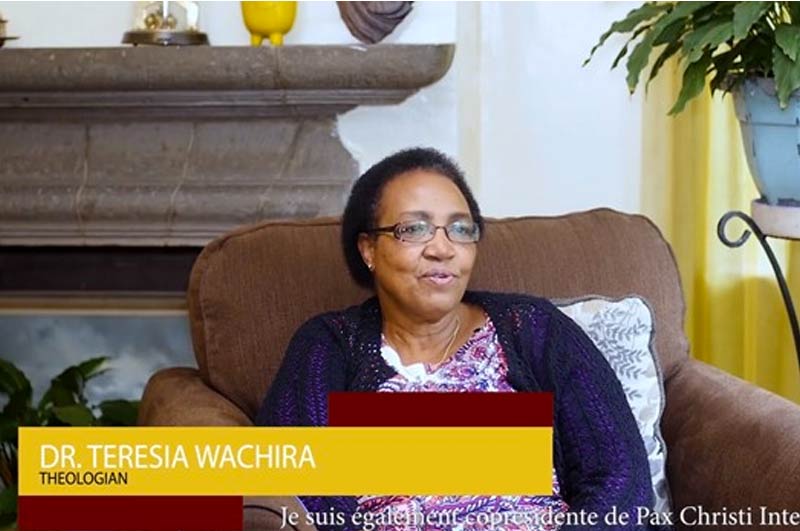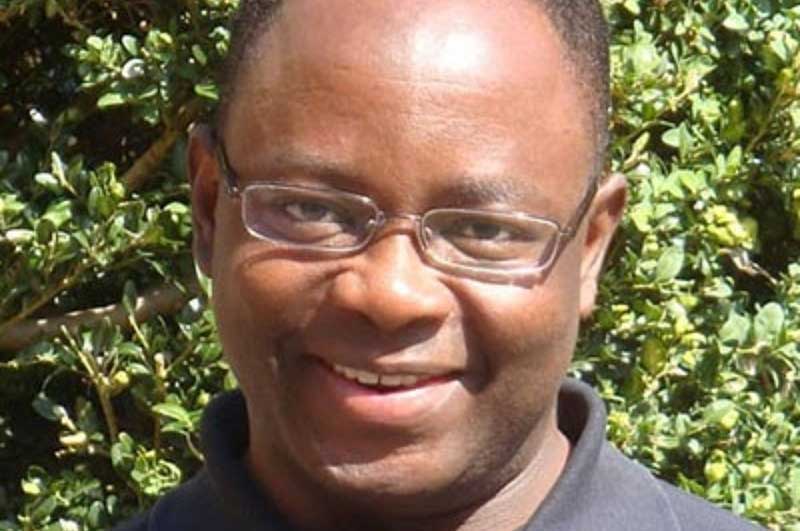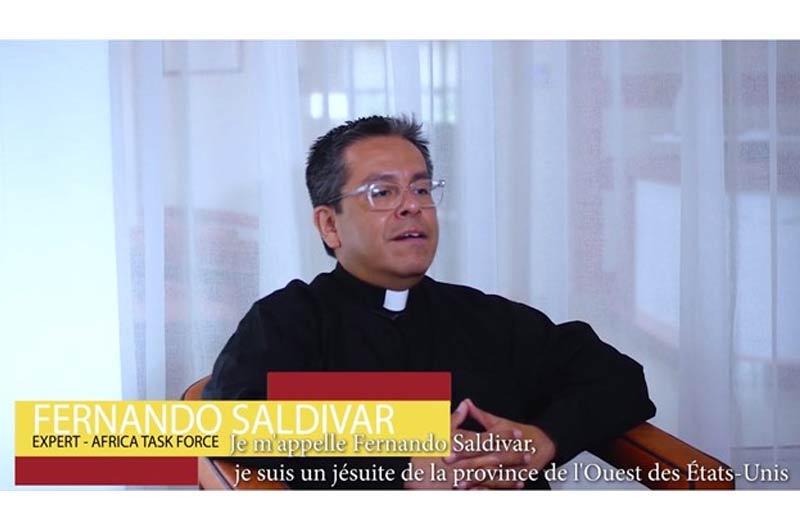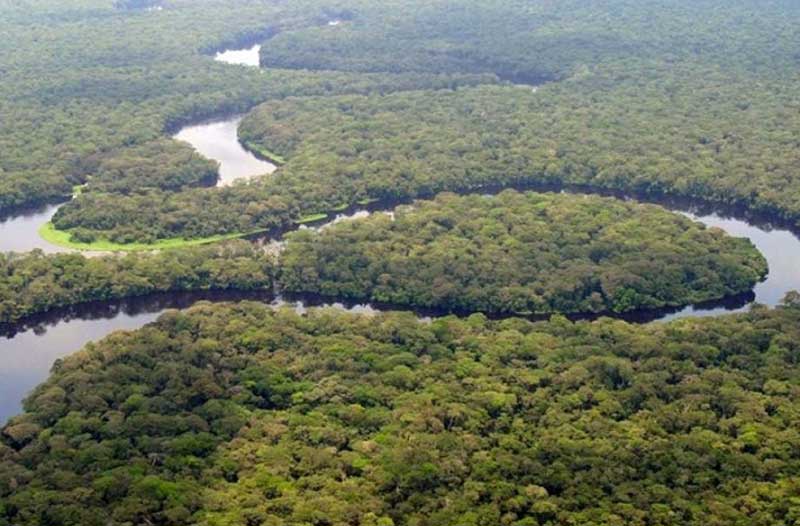


 The UNESCO Salonga National Park in DR Congo, located near the peat bogs of the Congo Basin, is the subject of a request for decommissioning for a petroleum project by the government. In the Republic of Congo, four blocks were approved for oil exploration while three other oil blocks in the peatlands are included in the 2018-2019 licensing process. The Congo government recently announced the discovery of an oil field in one of the blocks located in peatlands that could quadruple the country’s production. (Sources: La Libre Afrique and RFI)
According to the community of scientists of the Congo Basin and civil society, oil production and related infrastructure projects would expose the peat bogs and forests of the Congo Basin and threaten global efforts to combat CO2 emissions. Civil society stressed that oil drilling in these areas, in one of the planet’s most carbon-dense ecosystems, is incompatible with the objective of the Paris Agreement.
It is for these reasons that civil society organizations during COP25 advocated the cancellation of petroleum contracts which are serious obstacles to the promotion of credible and long-term peatland protection.
In March 2018, the UN Environment Programme and partners in the Global Peatlands Initiative, brought together DR Congo, the Republic of Congo, and Indonesia to jointly sign the Brazzaville Declaration to protect the Cuvette Centrale region in the Congo Basin, considered the world’s largest tropical peatlands. The Brazzaville Declaration sought protection for the peatlands from unregulated land use and the prevention of the drainage and degradation of this “globally important carbon store.”
The Ecclesial Network of the Congo Basin Forest (Réseau pour le Ecclésiale Bassin du Fleuve Congo or REBAC) joined COP25 and supports the 2019 position paper by Congo civil society and continues to engage with these organizations in calling for peatland management and caring for the Congo Basin and its people.
Civil society organizations who joined the position paper include:
Commission Episcopale pour les Ressources Naturelles (CERN/CENCO)
Sauve Ton Monde Vert (Save Your Green World)
Hope Land Congo
Femmes Environnement Nature Entrepreneuriat Vert (FENEV)
Groupe de Travail Climat REDD+ Rénové (GTCRR)
Centre des Technologies Innovatrices et le développement durable (CTIDD)
Greenpeace Africa
Bureau de Veille et de Gouvernance des Ressources Naturelles (BVGRN)
Dynamique des Groupes des Peuples Autochtones (DGPA)
Réseau des communicateurs de l’environnement (RCEN)
Forum pour la Gouvernance et les Droits de l’Homme (Forum for Governance and Hum
an Rights) (FGDH)
Groupe d’Action pour Sauver l’Homme et son Environnement (GASHE)
Centre for the Defence of Human rights and Democracy (CDHD)
Centre d’Appui à la Gestion Durable des Forêts Tropicales (CAGDFT)
Réseaux Ressources Naturelles (RRNRDC)
Action Communautaire pour le Développement Durable (ACDD)
Groupe de Travail Forêts (GTF)
Coalition des Femmes Leaders pour l’Environnement et le Développement Durable (CFLEDD)
Association pour le respect du droit des populations autochtone du développement durable et du droit l’homme (ARPA2DH)
Réseau national pour la promotion des peuples autochtones du Congo (RENAPAC)
Related story:
National Geographic published this article Inside the search for Africa’s carbon time bomb by Daniel Grossman on 1 October 2019 that documents the journey of the scientists and crew in locating the peatlands in the Congo Basin.
The UNESCO Salonga National Park in DR Congo, located near the peat bogs of the Congo Basin, is the subject of a request for decommissioning for a petroleum project by the government. In the Republic of Congo, four blocks were approved for oil exploration while three other oil blocks in the peatlands are included in the 2018-2019 licensing process. The Congo government recently announced the discovery of an oil field in one of the blocks located in peatlands that could quadruple the country’s production. (Sources: La Libre Afrique and RFI)
According to the community of scientists of the Congo Basin and civil society, oil production and related infrastructure projects would expose the peat bogs and forests of the Congo Basin and threaten global efforts to combat CO2 emissions. Civil society stressed that oil drilling in these areas, in one of the planet’s most carbon-dense ecosystems, is incompatible with the objective of the Paris Agreement.
It is for these reasons that civil society organizations during COP25 advocated the cancellation of petroleum contracts which are serious obstacles to the promotion of credible and long-term peatland protection.
In March 2018, the UN Environment Programme and partners in the Global Peatlands Initiative, brought together DR Congo, the Republic of Congo, and Indonesia to jointly sign the Brazzaville Declaration to protect the Cuvette Centrale region in the Congo Basin, considered the world’s largest tropical peatlands. The Brazzaville Declaration sought protection for the peatlands from unregulated land use and the prevention of the drainage and degradation of this “globally important carbon store.”
The Ecclesial Network of the Congo Basin Forest (Réseau pour le Ecclésiale Bassin du Fleuve Congo or REBAC) joined COP25 and supports the 2019 position paper by Congo civil society and continues to engage with these organizations in calling for peatland management and caring for the Congo Basin and its people.
Civil society organizations who joined the position paper include:
Commission Episcopale pour les Ressources Naturelles (CERN/CENCO)
Sauve Ton Monde Vert (Save Your Green World)
Hope Land Congo
Femmes Environnement Nature Entrepreneuriat Vert (FENEV)
Groupe de Travail Climat REDD+ Rénové (GTCRR)
Centre des Technologies Innovatrices et le développement durable (CTIDD)
Greenpeace Africa
Bureau de Veille et de Gouvernance des Ressources Naturelles (BVGRN)
Dynamique des Groupes des Peuples Autochtones (DGPA)
Réseau des communicateurs de l’environnement (RCEN)
Forum pour la Gouvernance et les Droits de l’Homme (Forum for Governance and Hum
an Rights) (FGDH)
Groupe d’Action pour Sauver l’Homme et son Environnement (GASHE)
Centre for the Defence of Human rights and Democracy (CDHD)
Centre d’Appui à la Gestion Durable des Forêts Tropicales (CAGDFT)
Réseaux Ressources Naturelles (RRNRDC)
Action Communautaire pour le Développement Durable (ACDD)
Groupe de Travail Forêts (GTF)
Coalition des Femmes Leaders pour l’Environnement et le Développement Durable (CFLEDD)
Association pour le respect du droit des populations autochtone du développement durable et du droit l’homme (ARPA2DH)
Réseau national pour la promotion des peuples autochtones du Congo (RENAPAC)
Related story:
National Geographic published this article Inside the search for Africa’s carbon time bomb by Daniel Grossman on 1 October 2019 that documents the journey of the scientists and crew in locating the peatlands in the Congo Basin.
 Rigobert Minani SJ is the REBAC Coordinator and is part of the Ecojesuit team in the Jesuit Conference of Africa and Madagascar. He joined the official delegation of the Democratic Republic of Congo during COP25 in Madrid, Spain
Rigobert Minani SJ is the REBAC Coordinator and is part of the Ecojesuit team in the Jesuit Conference of Africa and Madagascar. He joined the official delegation of the Democratic Republic of Congo during COP25 in Madrid, Spain
Related Articles
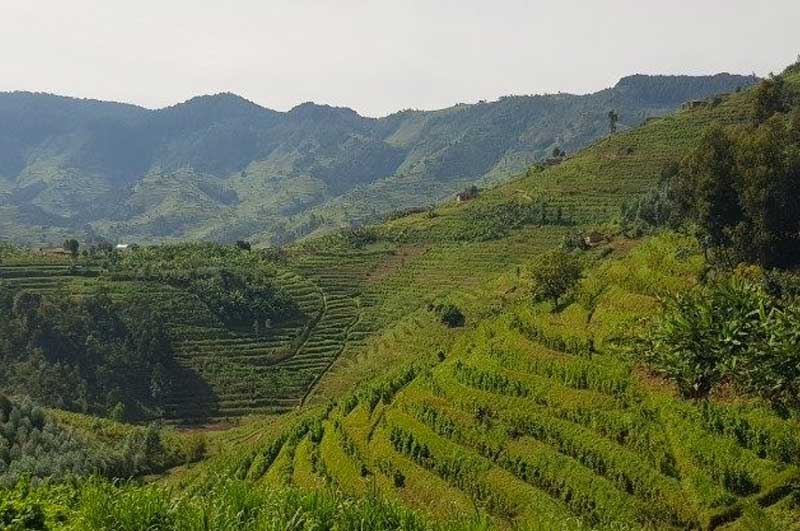
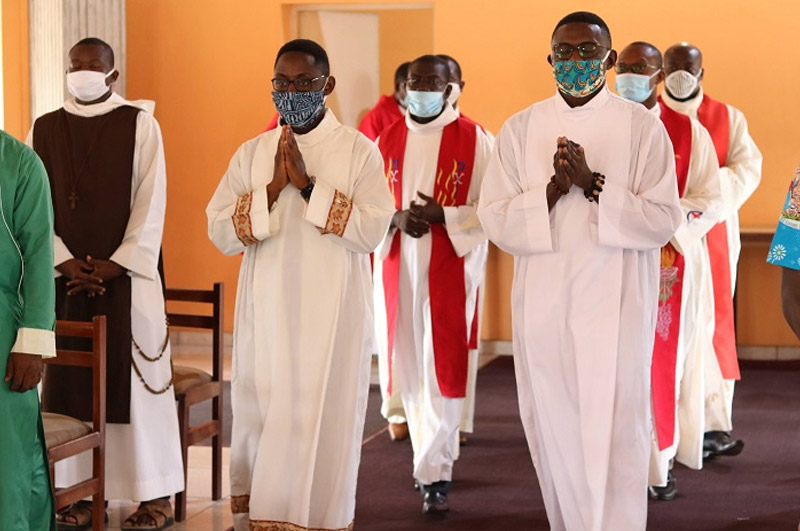
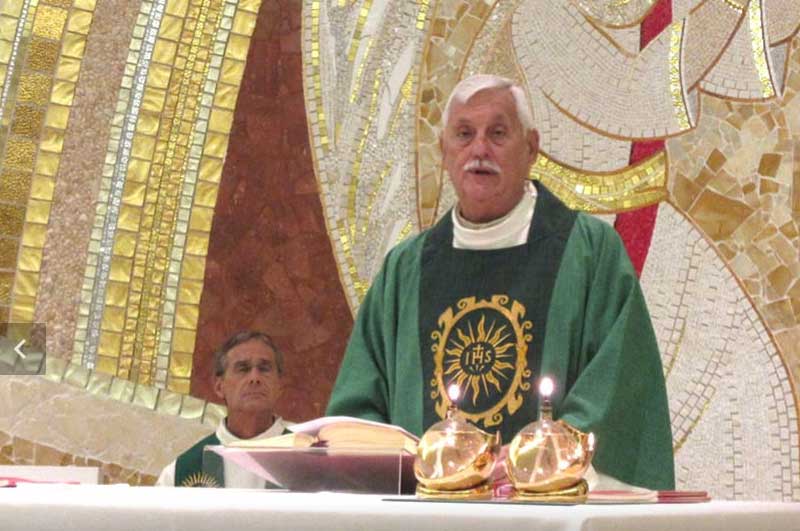
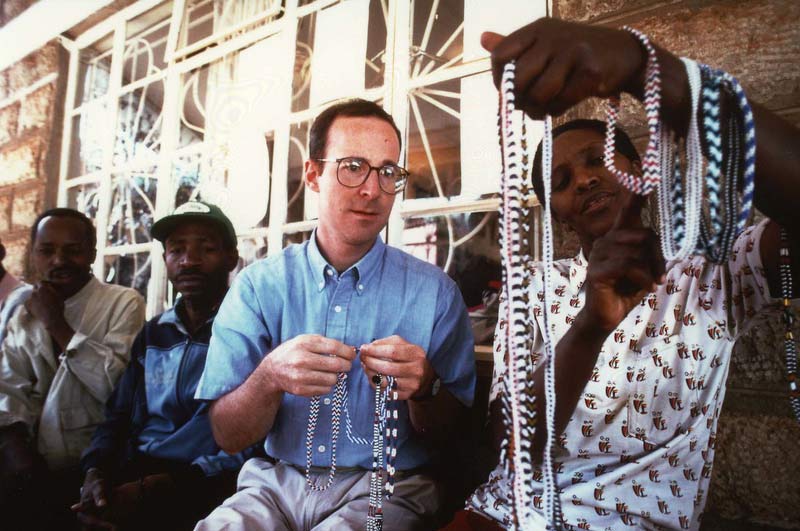
Select Payment Method
Pay by bank transfer
If you wish to make a donation by direct bank transfer please contact Fr Paul Hamill SJ treasurer@jesuits.africa. Fr Paul will get in touch with you about the best method of transfer for you and share account details with you. Donations can be one-off gifts or of any frequency; for example, you might wish to become a regular monthly donor of small amounts; that sort of reliable income can allow for very welcome forward planning in the development of the Society’s works in Africa and Madagascar.
Often it is easier to send a donation to an office within your own country and Fr Paul can advise on how that might be done. In some countries this kind of giving can also be recognised for tax relief and the necessary receipts will be issued.



